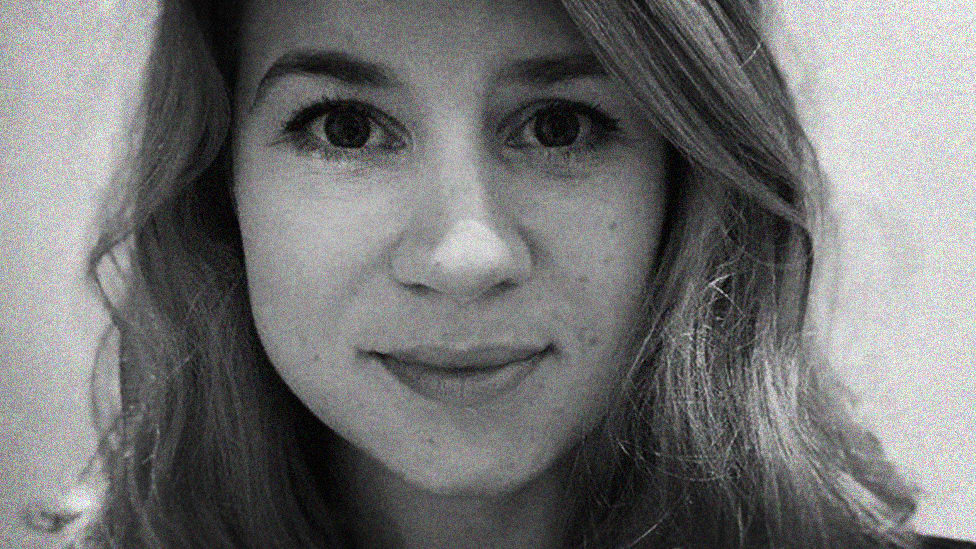The kidnapping and murder of any woman — any person — should leave everyone in society bereft.
But the case of Sarah Everard, who disappeared during her walk home in South London on March 3 and whose body was discovered nearly 40 miles away in Kent on March 10, has affected people in the U.K — especially women — with a particular alarm, an unshakeable anger and a deep grief.
Perhaps part of the reason Sarah’s story touched so many people is because of the way it was reported — substantially and with an urgency that we all needed to act quickly as a community to find her. Tragically, women go missing in the U.K. at an all too alarming rate, and we don’t hear about the majority of them in the same way. Instead, when they are widely reported at all, we are told that the women who have gone missing had money troubles or untreated mental health issues — as though those aren’t also resolvable, societal problems.
Or they are found and nothing else happens. Take the case of 21-year-old Blessing Olusegun, whose body was found on a beach in East Sussex last year. The circumstances of her death were declared “unexplained” and the means was given as “death by drowning” — and it was seemingly left at that.
Tragically, women go missing in the U.K. at an all too alarming rate, and we don’t hear about the majority of them in the same way.
Sarah’s case was different, almost from the beginning, as though to show us how we’d been thinking about this all wrong.
First, Sarah did everything we are taught to do as women to keep ourselves safe. She set off from a friend’s house while it was still light. She was dressed in practical clothing — a jacket, hat, loose sweater, comfortable pants and sneakers — brightly colored enough to be visible in the evening. She took a popular, well-lit path during her walk. She called up her boyfriend on the way home to let him know of her arrival time.
In fact, given all the advice that women are told to follow to keep ourselves safe, it would seem as though there is nothing more Sarah could have done to protect herself from what happened to her.
That all of this advice sounds both reasonable and familiar — let alone that we believe it protective — says something vital about the way we perceive fault in abduction, abuse and murder cases. Each piece of advice has an opposite; if we choose the wrong option, we are told, we are putting ourselves at risk.
But women do not do the “wrong” things and lead themselves into the fray; abusers do the wrong things by harming women, regardless of what time those women leave their friends’ houses, what they wear, what roads they chose or who they call on the way. And if ever we are to realize that those with bad intentions can harm us, no matter how well we follow the supposed rules, then it is by way of Sarah’s case.
Women do not do the “wrong” things and lead themselves into the fray; abusers do the wrong things by harming women.
After all, Wayne Couzens, an officer who had been serving with London Metropolitan Police’s diplomatic protection command, is the one who has been charged with kidnapping and murder in her her death.
There has been much debate about the “rarity” of women being abducted and killed in the U.K. Dame Cressida Dick, the head of the Metropolitan Police, made that point when addressing the U.K. nearly a week ago, saying that “it is thankfully incredibly rare for a woman to be abducted from our streets.” But that all depends on what you mean by rarity: If you compare it to the rate at which a man kills a women in a domestic setting — once every three days, according to the U.K. Femicide Census — then yes, perhaps it is “rare.”
But rarity is besides the point: In 2021, “rare” should be “never.”
After #MeToo exploded in 2017, perhaps our society thought that women had exorcized all of our stories of daily aggressions, sexism, groping, sexual abuse and rape. We had, we believed, drawn a line in the sand that meant from here on out, women would be safer. But Sarah’s case and the stories of danger that women have come forward with yet again — many of them new, many of them since #MeToo — shows us just how little progress has been made.
I have one such story: In early 2018, I was chatting with a man in a bar and, as I was leaving — alone — he forced his way into my taxi and then promptly, physically forced me to perform oral sex against my will. The cab driver — also a man — did not even stop the cab to intervene. When I finally dared to report the incident to the police, I was told that the closed circuit TV video recorded by law inside the vehicle and the video in the local area from which the taxi left would have been deleted and there was nothing they could do to locate my assailant.
We hope — and some of us pray — that Sarah’s case will be the last kidnapping and murder visited upon a woman and her loved ones in our country
Did that leave me with a mistrust and disappointment in the police? Oddly, no. Because I, like so many women in the city of London — and indeed across the country — are so used to hearing how “difficult” is it to bring a sexual assault prosecution.
We take for granted that the police will tell us that if we have washed our bodies, washed our clothes, let the CCTV expire or don’t remember the license plate of the cab we took, well, there’s little they can do to help us. Meanwhile, prosecutions and convictions have more than halved in three years while rapes have increased, according to the Crown Prosecution Service.
But that is wrong. Our first thought when we are victimized shouldn’t be, There’s no point reporting it because they probably can’t help us anyway. When the police say that they can’t or won’t try to track down abusers, they are effectively decriminalizing rape — as several feminist campaigners and academics have pointed out.
We hope — and some of us pray — that Sarah’s case will be the last kidnapping and murder visited upon a woman and her loved ones in our country. But the statistics suggest otherwise. And given that the police can’t seemingly offer us more than reassurances that these cases are “thankfully incredibly rare,” even as one of them is charged in the crime, then we are all — always — as vulnerable as Sarah was.
Source: | This article originally belongs to Nbcnews.com











